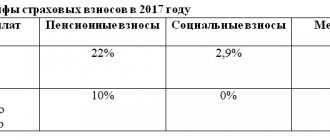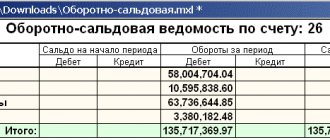In business, it often happens that a counterparty for some reason does not fulfill its obligations. To protect its interests, the company will file a claim against the partner. Therefore, almost every organization has to make calculations for claims. We will tell you in this article how to correctly make these calculations and reflect them in accounting and tax accounting.
How to file a claim in case of non-fulfillment or improper fulfillment of a contract?
Form and content of the complaint
Submit your claim in any written form. At the same time, clearly indicate which obligations the counterparty did not fulfill, the provisions of which document were violated (protocol, contract, agreement, etc.), offer your way out of the current conflict situation.
Attention: if the organization decides to make a claim to the counterparty, promptly notify him that a violation of the terms of the contract has been identified. Otherwise, he may refuse to satisfy the claim (see, for example, Article 483 of the Civil Code of the Russian Federation). If an organization decides not to file a claim but immediately goes to court, its claim will not be considered. It is impossible to go to court without skipping the stage of pre-trial dispute resolution (for example, immediately writing a statement of claim to collect a penalty). This follows from Article 128 of the Arbitration Procedural Code of the Russian Federation and Article 136 of the Civil Procedure Code of the Russian Federation.
For example, when making a claim, the buyer must notify the seller of a violation of the terms of the purchase and sale agreement regarding the quantity, assortment, quality, completeness, container and (or) packaging of the goods within the period prescribed by law, other legal acts or the contract. And if such a period is not established, within a reasonable period after the violation of the relevant term of the contract should have been discovered based on the nature and purpose of the goods. This procedure is established in Article 483 of the Civil Code of the Russian Federation.
The feasibility of the claim procedure
To protect legitimate interests, the parties can always go to court. But, as a rule, a more effective way to resolve the conflict is to try to resolve the issue out of court. One of the forms of such a settlement is the filing of a claim - a direct indication to the other party of its non-compliance with certain clauses of the agreement, namely:
- erroneous or incorrect action;
- inaction;
- delays, etc.
In addition to recording such facts, the claimant expresses a demand to correct the noted violations.
Question: How to calculate the limitation period: from the moment the claim is served on the contractor or from the moment the statement of defects in the work is served? View the court decision
Pros of filing a claim:
- this is the most economical of all methods of conflict resolution;
- takes significantly less time compared to court proceedings;
- in most cases it is a necessary step before litigation;
- in many cases can prevent a claim from being filed at all;
NOTE! Filing a claim before going to court is mandatory if this is specified in the regulations of the organization, as well as in the contract, the clauses of which were violated. Otherwise, the court will return the application due to a violation of the pre-trial procedure. If there was no clause on claims in the contract, you can, if desired, omit the claims operations and immediately seek the truth in court.
Timeframe for consideration of a claim
The counterparty is obliged to consider the claim. The deadline for this can be set:
- legislation (see, for example, paragraph 5 of Article 12 of the Law of June 30, 2003 No. 87-FZ);
- agreement;
- internal regulations of the organization or business customs.
This follows from Article 309 of the Civil Code of the Russian Federation.
At the same time, civil legislation does not establish sanctions for violating this deadline (see, for example, Article 12 of the Law of June 30, 2003 No. 87-FZ or Article 37 of the Law of July 17, 1999 No. 176-FZ).
The norms of judicial law do not provide for any sanctions (Arbitration Procedure Code of the Russian Federation, Code of Civil Procedure of the Russian Federation).
Financial sanctions (for example, a fine) for violating the deadline within which a claim must be considered may be provided for in an agreement with the counterparty (clause 4 of Article 421 of the Civil Code of the Russian Federation).
Nuances of filing and filing a claim
Recording violations of the contract and requirements regarding them must be documented. Required elements of the claim:
- the names of both organizations – the filing party and the “respondent”;
- addresses and details of both legal entities;
- statement of specific requirements;
- the amount of the claim with the justification for its calculation;
- the bank account to which the claim money should be transferred;
- references to violated clauses of the contract;
- numbers and names of supporting documents (with copies of them attached).
It is best to submit a claim by delivery under a personal signature or by registered mail.
From what day should the period for filing a claim ?
Observe the filing deadlines : for each specific case they are provided for in the relevant federal laws; as a general rule, they should not exceed a month from the date of detection of non-compliance with the contract. The opponent has the same period to respond to the letter of claim.
IMPORTANT! If you receive a refusal or there is no response to your claim for more than 30 days, you have every right to appeal to the arbitration court.
What requirements can you make?
A claim can include one or more claims. For example, these requirements could be:
- pay sanctions for violation of the terms of the contract (Article 329 of the Civil Code of the Russian Federation);
- to pay damages. For example, related to the forced purchase of goods from another supplier at a higher price (Article 393 of the Civil Code of the Russian Federation);
- return the paid but not spent advance (Article 453 of the Civil Code of the Russian Federation);
- issue a return or replacement of products (goods). For example, if it is defective (Article 475 of the Civil Code of the Russian Federation);
- eliminate defects. For example, correct the quality of improperly performed work (clause 1 of Article 723 of the Civil Code of the Russian Federation);
- reduce the price, that is, mark down the object of the contract. For example, if a product was received of inadequate quality (clause 1 of Article 475 of the Civil Code of the Russian Federation).
Actions of the counterparty upon receipt of a claim
The counterparty to whom the organization has filed a claim has the right to:
- acknowledge it;
- refuse to confess (for example, in the absence of his guilt in violating the obligation);
- continue business correspondence (for example, in order to obtain additional information or prove the absence of guilt in violating an obligation).
This follows from Article 401 of the Civil Code of the Russian Federation.
In the last two cases (refusal and continuation of correspondence), no entries need to be made in accounting (Article 5 of Law No. 402-FZ of December 6, 2011). Claims not recognized by the debtor do not affect taxation (Chapters 25, 26.2 and 26.3 of the Tax Code of the Russian Federation). This is due to the fact that there is no obligation or any settlement involved.
Situation: will the court accept for consideration the organization’s statement of claim against its counterparty if the counterparty left the claim previously sent to it without consideration?
Yes, he will.
In order for a court to consider a claim against a counterparty, the very fact of pre-trial (claim) proceedings between the parties is important, and not its result. Therefore, if the counterparty did not consider the received claim, did not respond to the organization, or during the proceedings the parties did not come to an agreement, the courts consider the pre-trial (claim) procedure for resolving disputes to be followed (see, for example, the resolutions of the Federal Antimonopoly Service of the North-Western District dated November 13, 2007 No. A56-49658/2005, Ural District dated June 20, 2005 No. F09-1757/05-S5). The court will accept the organization's statement of claim for consideration (Part 5, Article 4 of the Arbitration Procedure Code of the Russian Federation, Article 136 of the Code of Civil Procedure of the Russian Federation).
In the event that the debtor acknowledges a claim raised by an organization, the accounting and taxation of such a transaction depend on the nature of the claims presented to the counterparty.
In most cases, make settlements for claims recognized by counterparties using account 76 of subaccount 2 “Settlements for claims” (Instructions for the chart of accounts).
Features of calculating the claim amount
In order for a claim to be definitely recognized and paid, its amount must be correctly and reasonably indicated. To do this you should follow:
- current Chart of Accounts;
- Methodological guidelines for accounting of inventories, approved by Order of the Ministry of Finance of Russia No. 119n dated December 28, 2001.
If a shortage is identified, the amount should be calculated, taking into account the following important points:
- If the quantity of missing goods is within the limits of natural loss, then the amount of the shortage is calculated at the cost at which the goods were sold by the supplier (the number of missing goods is multiplied by the price of a unit of goods). Transport costs and VAT on missing units are not taken into account.
- If part of the goods is damaged, but not irreparably, and can still be used by the buyer (which he agrees to) or sold again at a reduced cost, they must be received at the price of the possible sale.
- If the defective and missing goods amount to a significant quantity, they are valued at cost (supplier price + VAT + transport costs).
Question: Will the claim procedure be considered complied with if the claim for payment of debt and penalties does not contain a calculation of the penalty under the contract and the amount of the penalty? View answer
Acknowledgment of the claim
Legislation or an agreement may provide, for example, the following types of sanctions for violation of obligations: penalties (fines, penalties), interest for late payment, etc. This follows from Articles 329 and 395 of the Civil Code of the Russian Federation.
In addition, the organization may demand that the culprit compensate for losses associated with violation of contractual obligations, including lost profits (Article 15 of the Civil Code of the Russian Federation). For example, if a sales contract is terminated due to the fault of the seller, the buyer has the right to apply the provisions of Article 524 of the Civil Code of the Russian Federation. Namely, to demand that the counterparty compensate him for losses incurred due to the need to purchase goods from another seller at a higher price. If a new contract is concluded within a reasonable time and at a reasonable price, the failed seller must compensate the buyer for the difference between the cost of the goods under the terms of the terminated and the new contract.
How to reflect in accounting and taxation the amounts of penalties (fines, penalties) issued by the organization and recognized by the debtor, see How to take into account the receipt of legal interest, penalties and interest for late fulfillment of obligations. Similarly, reflect the counterparty's compensation for losses.
An example of how to reflect in accounting and taxation the receipt of a penalty from a counterparty for violating the terms of an agreement. The organization applies a general taxation system
In February, Torgovaya LLC supplied Alpha LLC with goods worth 120,000 rubles. (including VAT – 18,305 rubles). The due date for their payment under the contract is February 21.
In case of late payment for the delivered goods, the buyer, according to the terms of the contract, must pay a penalty. The amount of the penalty is 0.1 percent of the amount of debt to pay for goods for each day of delay.
Alpha transferred payment for the goods delivered to Hermes only on March 24. On March 25, Hermes submitted a claim to Alpha for payment of a penalty for late payment under the contract (the delay was 31 days).
The amount of the penalty for late payment for goods was: 120,000 rubles. × 0.1% × 31 days = 3720 rub.
Alpha acknowledged Hermes' claim and paid a penalty.
In the Hermes accounting, the accountant made the following entries:
Debit 76-2 Credit 91-1 – 3720 rub. – a penalty was accrued for violation of the deadline for payment for goods;
Debit 51 Credit 76-2 – 3720 rub. - a penalty was received.
Hermes pays income tax monthly, using the accrual method. The accountant included the amount of the penalty (3,720 rubles) as part of the organization’s non-operating income.
Digital library
Finance and credit / Financial accounting (part 1) / 2.9 Accounting for settlements of claims
In practice, there are frequent cases of violation of the terms of contracts by business entities. According to the Civil Code of the Russian Federation (Civil Code of the Russian Federation), the debtor is obliged to compensate the creditor for losses caused by non-fulfillment or improper fulfillment of the obligation. Reclamation from the person who violated the terms of the contract for the amount of losses incurred by the buyer is made by filing a claim. If the guilty person refuses to satisfy the claim, the person whose rights were violated has the right to bring a claim to the arbitration court.
The amount of the claim is determined by the amount of loss incurred by the buyer. Losses are understood as expenses that a person whose right has been violated has made or will have to make to restore the violated right, as well as lost income that this person would have received under normal conditions of civil circulation if his right had not been violated (lost profits). In addition, organizations can put forward demands for payment of fines, penalties, and penalties provided for in the contract.
The expenses of the injured party include the actual expenses incurred by it up to the date of filing the claim. For example, expenses due to production downtime, elimination of deficiencies in the products received (work performed), payment of sanctions (including compensation for losses) and others.
Unreceived income (lost profits) includes all income that the injured party would have received if the obligation had been fulfilled (for example, profit not received as a result of a decrease in production volume or sales of products, a change in the range of manufactured products, a decrease in their quality, etc. ).
Damages are determined based on the nature of the consequences of a violation of a contractual obligation, and not on the content of the violation itself. The same violation (for example, short delivery) can cause different consequences (reduced production volume, decreased product quality, etc.), just as different violations (short delivery, delivery of incomplete products or products of inadequate quality, etc.) can cause the same consequence . For example, when production volume decreases, losses are calculated in the same way, regardless of what violation caused the decrease in production volume.
When determining the amount of damage (losses), it is recommended to focus on the following list of the main consequences of violation of contractual obligations and types (composition) of damage (losses) presented in Table. 2.5.
Table 2.5 Violations of contractual obligations and types of damage
| Consequences of violations contractual obligations | Types (composition) of damage (losses) |
| Reducing the volume of production or sales of products (works, services) | Lost profit; Increase in semi-fixed costs in production costs Costs of paying sanctions |
| Downtime and speeding up production | Salary expenses with social security contributions Costs of paying sanctions |
| Replacement of raw materials, materials, components | Wage costs with social insurance contributions (with an increase in the labor intensity of products) Costs of raw materials, materials, components and fuel and energy resources |
| Defects resulting from the use of products (raw materials, materials, workpieces, etc.) received from the supplier with a hidden irreparable defect (defect) identified during the production of products (works, services) or during the operation (use) of these products (works, services) ) from the consumer | Cost of marriage Costs for reimbursement of costs incurred by the consumer in connection with the purchase of products (works, services) made using products (raw materials, materials, workpieces, etc.) with a hidden irreparable defect, costs for dismantling these products Transportation costs caused by replacing defective products Lost profit Costs of paying sanctions |
| Return or sale of products of inadequate quality or incomplete | Costs of returning products to the supplier or selling them |
Continuation of Table 2.5
| Consequences of violations contractual obligations | Types (composition) of damage (losses) |
| Elimination of deficiencies in the products received (work performed) | Salary expenses with social security contributions Material costs associated with eliminating deficiencies |
| Delivery of products in an expedited manner | Expedited delivery costs |
| Purchasing products from another supplier or producing them yourself | Costs of purchasing products from another supplier or producing them yourself |
| Loss or damage to property | Cost of lost property The amount of depreciation of damaged property or the cost of eliminating damage |
| Change in the range of manufactured products (works, services) | Lost profit Costs of paying sanctions Increase (decrease) in semi-fixed costs in the cost of production |
| Decrease in the quality of manufactured products (works, services) | Lost profit Costs for reimbursement of product markdowns Expenses to eliminate deficiencies in supplied products (works, services) Additional costs for warranty repairs and maintenance of products at the consumer Costs of paying sanctions |
The most common violation of the purchase and sale agreement.
Such violations include discrepancy between the prices of the goods received and the contract prices, non-compliance with the requirements for the quality and range of goods, and short delivery of goods.
When the seller transfers to the buyer, in violation of the purchase and sale agreement, a quantity of goods less than determined by the agreement, as well as in the assortment, not
corresponding to the contract, the buyer has the right to refuse to accept and pay for it, and if it is paid, to demand the return of the amount paid.
In the event of a significant violation of the requirements for the quality of the goods (detection of irreparable defects, defects that cannot be eliminated without disproportionate costs or time, or are detected repeatedly, or appear again after their elimination, and other similar defects), the buyer has the right, at his choice:
· refuse to fulfill the purchase and sale agreement and demand the return of the amount of money paid for the goods;
· demand replacement of goods of inadequate quality with goods that comply with the contract.
Financial accounting of settlements for claims presented to suppliers, contractors, transport and other organizations, as well as for fines, penalties and penalties presented to them and recognized (or awarded), is maintained on account 76, subaccount 2 “Settlements for claims”.
Dt 76/2 reflects, in particular, calculations for claims:
· to suppliers, contractors and transport organizations on identified errors when checking their accounts, as well as when identifying arithmetic errors - in correspondence with account 60 “Settlements with suppliers and contractors” or with accounts for inventory, goods and related costs, when prices are inflated or arithmetic errors in invoices submitted by suppliers and contractors were discovered after entries in the inventory or cost accounts were made.
· to suppliers of materials, goods, as well as to organizations that process the organization’s materials, for detected quality inconsistencies with the requirements of standards, technical specifications, orders - in correspondence with account 60 “Settlements with suppliers and contractors”;
· to suppliers, transport and other organizations for shortages of cargo in transit in excess of the norms of natural loss - in correspondence with account 60 “Settlements with suppliers and contractors”;
· for defects and downtime caused by suppliers or contractors, in amounts recognized by payers or awarded by arbitration - in correspondence with production cost accounts;
· to banking institutions for amounts erroneously written off (transferred) to the enterprise’s accounts - in correspondence with the accounts of cash and bank loans;
· for fines, penalties, penalties collected from suppliers, contractors, buyers, customers, consumers of transport and other services for failure to comply with contractual obligations, in amounts recognized by payers or awarded by arbitration - in correspondence with account 99 “Profits and losses”. In this case, the amounts of claims submitted that are not recognized by payers are not accepted for accounting.
The credit of account 76/2 “Settlements on claims” reflects the amounts of received payments in correspondence with cash accounts. Amounts that, as it turned out later, are not subject to recovery are attributed, as a rule, to those accounts from which they were recorded as the debit of account 76/2 “Calculations for claims.”
Refund of prepayment
The organization has the right to demand the return of the advance (part of the advance) under the contract if the obligations under it were not fulfilled (Article 453 of the Civil Code of the Russian Federation). For example, if the supplier did not deliver the goods within the period specified in the contract, you can demand a refund of the amount paid for the delivery (clause 1 of Article 463 of the Civil Code of the Russian Federation). After canceling the obligations under the contract or changing them, submit a claim to your partner. From this moment on, the amount of prepayment transferred to the supplier (performer) is not an advance payment. It becomes the supplier's (performer's) debt to return the money. The procedure for recording such debt in accounting is not provided for by law. This means that the organization must establish it independently and consolidate it in its accounting policies for accounting purposes. Thus, the debt for the return of money can be accounted for in a separate subaccount to account 60 (for example, the subaccount “Debt of suppliers for unpaid advances”) or in account 76.
On the day when the counterparty acknowledges the debt (this can be confirmed by his letter or the act of reconciliation of mutual settlements), make the following entry:
Debit 76-2 (60) Credit 60 (76) – reflects the debt of the counterparty under the claim (based on agreement of the parties).
For organizations that apply the general taxation regime, such an operation will affect the calculation of taxes as follows.
When calculating income tax (both accrual and cash methods), the amount of the advance returned by the counterparty will not affect the tax base (Articles 41, 249–251, paragraph 1 of Article 272, paragraph 2 of Article 273 of the Tax Code of the Russian Federation).
However, such an operation will have an impact on VAT calculations. In the quarter in which the advance is returned to the partner, restore the VAT previously accepted for deduction (subclause 3, clause 3, article 170 of the Tax Code of the Russian Federation).
For more information, see How to recover input VAT.
An example of reflecting in accounting operations for the return of an advance payment that has not been processed by the supplier. The organization applies a general taxation system
On September 20 (Q3), Alpha LLC transferred 100 percent prepayment under the agreement dated September 1 to Torgovaya LLC. The contract provides for the supply of a consignment of goods to Alfa in the amount of 590,000 rubles. (including VAT - 90,000 rubles) in October (IV quarter).
To account for settlements with suppliers, the accountant uses subaccounts opened to account 60 (subaccount “Advances issued”) and to account 76 (subaccount “VAT settlements from advances issued”).
The following entries were made in Alpha's accounting:
Debit 60 subaccount “Settlements for advances issued” Credit 51 – 590,000 rub. – an advance payment has been made towards the upcoming shipment of goods;
Debit 68 subaccount “Calculations for VAT” Credit 76 subaccount “Calculations for VAT from advances issued” – 90,000 rubles. – VAT paid to the supplier as part of the advance payment is accepted for deduction.
By the deadline established in the contract, Hermes did not have time to purchase the required quantity of products and did not deliver. On November 21, Alpha submitted a claim to Hermes for violation of the deadline for fulfilling the contract with a request to terminate it.
On November 22, the contract between Hermes and Alpha was terminated. On the same day, Hermes returned to Alpha the advance received in the amount of 590,000 rubles. (including VAT – 90,000 rubles).
The following entries were made in Alpha's accounting records:
Debit 76-2 Credit 60 subaccount “Settlements for advances issued” – 590,000 rubles. – the supplier’s debt is reflected in the amount of the advance that is subject to return due to termination of the contract for the submitted claim;
Debit 51 Credit 76-2 – 590,000 rub. – the supplier returned the unpaid advance;
Debit 76 subaccount “Calculations for VAT on advances issued” Credit 68 subaccount “Calculations for VAT” - 90,000 rubles. – VAT, previously accepted for deduction, has been restored.
Simplified organizations do not take into account the amount of advance payment returned by the counterparty when calculating the single tax. For more information about this, see: On what income do you need to pay a single tax when simplified.
When calculating UTII, the returned advance does not affect the calculation of tax (Article 346.29 of the Tax Code of the Russian Federation).
Accounting for buyer complaints
Accounting for customer claims against product suppliers is carried out on account 76, to which a subaccount 76.02 is additionally opened. The debit of the subaccount displays the demand presented (for example, for short delivery of goods) in correspondence with the account for accounting settlements with suppliers; subaccount credit – fulfillment of the terms of the contract by the supplier, cancellation of the claim.
Author's addition! In subaccount 76.02, settlements on claims are accounted for separately for each counterparty.
Purchase returns
You can return purchased goods for the following reasons:
- provided for by law (for example, clause 1 of article 466, clause 1 of article 468, clause 2 of article 475 and clause 2 of article 480 of the Civil Code of the Russian Federation);
- specified in the contract (clause 4 of article 421 of the Civil Code of the Russian Federation).
In accounting and taxation, a claim with a requirement to take back the goods is considered recognized after the return has been carried out (Article 5, paragraph 1 of Article 9, paragraph 1 of Article 10 of the Law of December 6, 2011 No. 402-FZ and Chapter 25, 26.2 and 26.3 of the Tax Code of the Russian Federation).
For more information about accounting and taxation of this operation, see:
How can a buyer record the return of goods on the grounds provided for by law?
- How can the buyer take into account the return of goods on the grounds provided for in the agreement?
If the counterparty is presented with a requirement to replace the returned goods, then in accounting and taxation the satisfaction of such a claim should be reflected in two operations: the return of some goods and the purchase of others.
Basic requirements for a claim
The buyer's claim to the seller is made in writing in any form, but must contain the following information:
- Addressee and sender. As a rule, this application is filled out in the name of: the head of the counterparty.
- Information about the purchased product or service: cost, date of purchase, additional information (for example, when returning a product under warranty, the warranty period of the product is additionally indicated).
- The claim as such (for example, listing the defects of the product).
- Requests: exchange, refund, reimbursement of costs, etc.
- Information about providing copies of documents in the application (for example, a copy of a check, warranty card, etc.).
- Date, position, signature and transcript of the applicant’s signature.
More information on filing claims in 1C software products can be found in the video
Correction of marriage
If an organization has received a defective product, it has the right to demand that the defect be eliminated free of charge (Article 475 of the Civil Code of the Russian Federation). A similar rule applies in case of poor quality work (see, for example, Article 723 of the Civil Code of the Russian Federation).
Warranty repairs (warranty service) can be carried out by:
- trade organizations (including importers) (clause 7 of article 5 of the Law of February 7, 1992 No. 2300-1).
Warranty repairs (warranty service) are subject to goods (results of work) for which a warranty period has been established. The start date of the warranty period is the date of transfer of goods (results of work performed) to the buyer (customer). That is, the date of registration of shipping documents or the acceptance certificate for work performed. This procedure follows from the provisions of Articles 470, 471 of the Civil Code of the Russian Federation, paragraph 2 of Article 19 of the Law of February 7, 1991 No. 2300-1.
To account for goods returned to correct defects, you can open a subaccount “Property under warranty” to account 41 (08, 01, 10). A unified form of the primary document with which the parties could formalize the acceptance and transfer of goods for warranty service is not provided for by law. Therefore, such a document can be drawn up in any form, containing all the mandatory details of the primary accounting documentation. This follows from paragraph 2 of Article 9 of the Law of December 6, 2011 No. 402-FZ.
For organizations that apply the general taxation regime, such an operation will affect the calculation of taxes as follows.
Input VAT on acquired material assets can be deducted in the general manner (clause 1 of Article 172, clause 2 of Article 171 of the Tax Code of the Russian Federation).
The value of inventory items purchased and transferred for warranty service will not reduce the tax base for income tax.
This is due to the fact that both with the cash and accrual methods, one of the conditions for writing off the cost of purchased goods as expenses is their sale (clause 1 of Article 272, clause 3 of Article 273, subclause 3 of clause 1 of Art. 268, Article 320 of the Tax Code of the Russian Federation). A product transferred to correct a defect cannot be sold to end consumers, which means its value cannot be written off (Articles 470, 471 of the Civil Code of the Russian Federation).
Before being written off for production (operation), it will not be possible to take into account when calculating income tax the materials transferred to the counterparty for correction of defects (clause 2 of Article 272, subclause 1 of clause 3 of Article 273, clause 1 of Article 254, subclause 1 Clause 3 of Article 273 of the Tax Code of the Russian Federation). As well as expenses for the acquisition of fixed assets (depreciation charges) that were not put into operation due to an identified defect (clause 3 of Article 272, subclause 2 of clause 3 of Article 273, clause 4 of Article 259 of the Tax Code of the Russian Federation) .
Similar rules apply for calculating the single tax when simplifying the difference between income and expenses (with the exception of provisions on VAT) (subclauses 1, 5, 23, clause 1, article 346.16, subclauses 1, 2, 4, clause 2, art. 346.17 Tax Code of the Russian Federation). Input tax on the cost of acquired valuables cannot be deducted (clause 2 of Article 346.11, clause 2 of Article 171 of the Tax Code of the Russian Federation). VAT can be included in expenses in the same period as the costs themselves, the acquisition of which it is associated with (subclause 8, clause 1, article 346.16, subclause 3, clause 2, article 170 of the Tax Code of the Russian Federation).
The transaction for the transfer of goods to correct the defect will not affect the amount of UTII (Article 346.29 of the Tax Code of the Russian Federation).
Reflect the independent elimination of defects in purchased goods in the same way as losses from internal defects.
Postings on claims from customers: accounting with the supplier
When receiving a complaint from a buyer, the supplier can make one of the following decisions:
- return the amount received from the counterparty (partially or fully depending on the type of violation);
- replace defective products;
- accept back non-working equipment
- eliminate defects;
- adjust contract prices downward;
- accrue and pay off penalties or fines.
If the supplier agrees with the contents of the letter of claim and is ready to accept defective products and reimburse their cost, such a return procedure will be carried out as a reverse sale.
Example
Sharm LLC sold inventory in the amount of 5,800 rubles, including VAT of 1,044 rubles. The buyer's payment for the product is 3 days overdue. According to the terms of the agreement, a penalty is charged for late payment. The penalty rate is 0.09% for each day.
Postings from the supplier:
- D76.2 – K91.1 – a penalty in the amount of 18.48 rubles was recognized. (6,844 x 0.09% x 3).;
- D51 – K76.2 – the buyer satisfied the requirements for the letter of claim, the penalty was paid in the amount of 18.48 rubles.
If the buyer transferred payment for the products in advance, and the supplier delayed delivery, then grounds for filing a claim would arise. Postings for claims from buyers look like this for the supplier:
- D51 – K62 – prepayment received;
- D62 – K76.2 – the requirements for the claim are taken into account and the company’s debt to the client is reflected;
- D76.2 – K51 – the buyer’s requirements have been satisfied.








